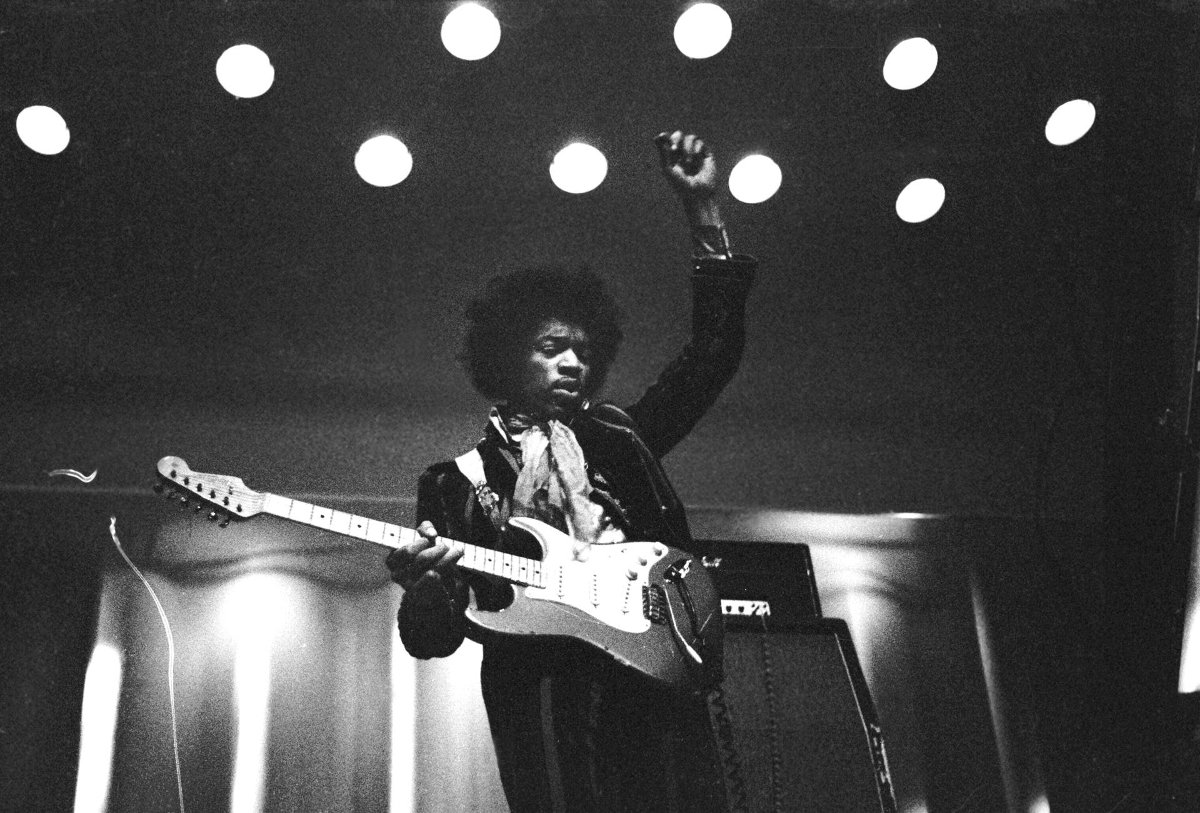“When the power of love overcomes the love of power the world will know peace.” —Jimi Hendrix

The world can be a brutal place, a place where people gain power not by being wise and respected, but by dominating and manipulating others.
Nietzsche believed we needed to free ourselves from this dominance and to recognize that “good” and “evil” are just words—words that have been used by the powerful to justify anything they might choose to do.
This is pure manipulation motivated by greed and the desire for power. To say that someone or something is “evil” is a powerful tool to deny reality and possibility. If we refuse to accept definitions of what is good or evil as they are handed down by those in positions of power in religion, politics, and business, we will have taken the first step to freeing ourselves from tyranny.
Religious leaders tell us to deny our sexuality. Political leaders tell us to deny the reality of climate change. Business leaders tell us to deny the need for a balanced lifestyle and to accept gross inequalities in compensation and benefits. It’s time to decide for ourselves what is good and evil instead of letting people in power make those decisions for us.
30 years ago, Barry Cohen and I wrote Ethical Leadership. The book focused on the relationships leaders should foster with their employees, their clients, their communities, and their culture.
The idea in each case was to free what was good in each relationship and to do harm to none.
We implored leaders to free exemplars and minimize controlling behaviors.
We urged leaders to build trusting relationships with clients and to refuse to engage in deceptive or fraudulent practices. We challenged leaders to look for ways to grow the communities in which they worked and to seek out interdependent partnerships. We proposed that great leaders take active roles in shaping their cultures and creating work environments that encouraged people to be and to do their best. In short, we suggested that leaders should do no evil and free what’s best in each person with whom they interact.

As I look at organizations that have embraced those ideas, two stand out. To me, Google has distinguished itself as a for-profit corporation by abiding by the principles of ethical leadership. And, in the world of not-for-profits, the Grand Traverse Regional Land Conservancy serves as a terrific example of an organization that models those principles.
“Don’t be evil” has been the foundation of Google’s corporate code of conduct since 2000.
When Google reorganized under Alphabet in 2015, it modified the motto to “Do the right thing”—even though it retained the original “Don’t be evil” in the unofficial corporate lexicon. To Googlers, “Don’t be evil” translates into deeply ingrained norms like: we provide our users unbiased access to information, we focus on customer needs, we follow the law, we act honorably, we treat co-workers with courtesy and respect, we measure ourselves against the highest possible standards of ethical conduct, we set the bar high for practical and aspirational reasons, we earn the trust and respect of employees and users every day. The Google Code of Conduct is one of the ways it puts “Don’t be evil” into practice. Compliance with the code of conduct is measured annually through a survey entitled Googlegeist.
Google has also established a division entitled “Grow with Google,” which provides trainings, workshops, access to tools, and coaching to communities around the country. For example, “Grow with Google” recently sponsored a free event in Nevada which attracted over 500 participants. The idea is to establish interdependent (grow-grow) relationships with communities in which all parties benefit. It would appear that Google is making an attempt to do as much good as possible without being evil although its recent negotiations with China raise concerns that the commitment may be slipping. Stay tuned.

The Grand Traverse Regional Land Conservancy (GTRLC) is an exemplary, non-profit organization in Northern Michigan dedicated to preserving the land and water resources in this pristine environment.
The GTRLC mission is to protect significant natural, scenic and farm lands and to advance stewardship now and for future generations.
Its vision is to preserve the priceless legacy of the region’s water, forests, and vistas. The land conservancy partners with the community to institutionalize the belief that protected lands and water resources are an essential element of the region’s long term prosperity.
A year ago, I had the privilege of conducting a strategic planning retreat with the entire staff of GTRLC. We not only reviewed goals and objectives, we also defined the culture we needed and wanted to implement the strategic plan. The whole team agreed on the desired and required norms for optimizing performance. The Land Conservancy team identified norms like: we relate collaboratively, we think interdependently, we value differences, we listen and respond thoughtfully, we communicate openly and honestly, we are true to our mission, we innovate and keep current with trends, and we measure impact.
This week we held a follow-up retreat with the whole staff to measure progress and to brainstorm ways to improve the strategy and the culture. 100% of the staff completed a confidential culture audit that enabled us to determine the strength, importance, and direction of the 7 values and 35 norms we had articulated last year.
In my 30 years of experience conducting culture audits with hundreds of organizations, the GTRLC results were the best I had ever seen.
The whole staff strongly agreed that all 35 norms were alive and well in their culture.
Typically, on a 5-point scale, organizations rate over half of the norms below 3 (disagree or strongly disagree that this norm is alive and well). In the GTRLC, almost all of the norms were rated above 4 and none was rated below 3. It was thrilling!
I share these two examples to illustrate that it is not only possible to create norms of our own choosing, it is also possible to establish work environments that optimize individual and organizational performance.
We not only can define what good and evil mean for us as individuals and organizations, we can also measure their respective strength and direction.
The key learning in each of these examples is that each organization decided for itself how it wanted to define good and evil. Those definitions were not imposed, they were mutually agreed upon by all stakeholders.
And both organizations had the courage to actually measure progress on an annual basis and to engage in open, honest conversations about how to improve their work environments.
The same principle applies to each of us as individuals. We don’t need to let religious establishments or political institutions define what’s good or evil for us.
We need to make those decisions for ourselves.

I’m not proposing a lawless society in which everyone gets to make up their own rules. I’m suggesting that we free ourselves from imposed dogma that makes no sense. As a case in point, look at what has happened to the Catholic church as a result of its colossally stupid policy of restricting leadership to celibate, male priests. It could be one of the most insane, externally imposed requirements every propagated. And it continues to exist because “That’s the way we have always operated.” Well, guess what? We don’t need to live according to antiquated and arbitrary norms and values. We can create our own. And we know from Google and GTRLC that performance and goodness improve as a result.
You don’t need to read all of Nietzsche’s Beyond Good and Evil to get the main point—we need to free ourselves from dogma and dominance and recognize that good and evil are just words. It’s our responsibility to define them in ways that lead to our own actualization and the betterment of the common good.
I wish we would embrace these definitions of good and evil:
- Evil is doing harm and limiting good.
- Good is being responsible AND freeing our capacity and capability to be more loving, to feel more joyful, and to realize our possibilities.
James Bovard once said,
“Democracy must be something more than two wolves and a sheep voting on what to have for dinner.”
The sheep need to have a reasonable say on what would satisfy everyone’s tastes and lead to a better dinner for all.
It’s time to stop letting the wolves set all the terms and reap all the rewards. You can make your own decisions on who the wolves are. The point remains. We need to call out leaders who continue to do harm and who manipulate, control, and limit goodness to serve their own ends. AND we need to create a world in which freedom and goodness reside peacefully together—a world in which the power of love is greater than the love of power. Even Jimi Hendrix knew that.



Well done Ricky! I’ve missed your missives!